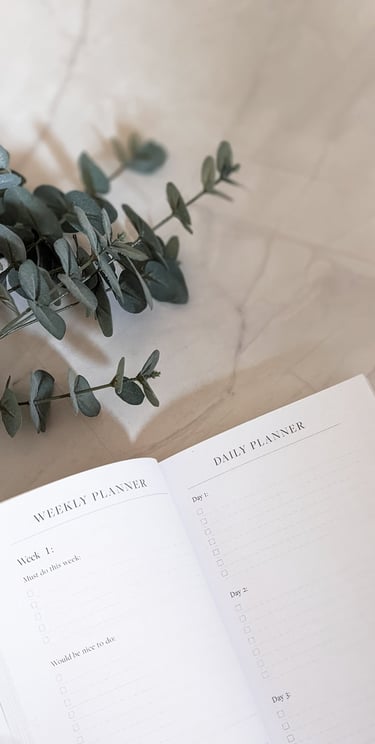Why I needed a schedule
How I went from never planning my time to creating a schedule that gave me a better balance and got things done.
12/16/20232 min read


Writing and working full-time during the week was a challenging balancing act for me. As a single older woman with financial responsibilities, I struggled to meet my commitment of creating every day. The demands of my job took a toll on my social life, writing, and artwork, causing increasing tension. Exhausted and stressed, I faced a major test on the horizon.
Why change?
Realising that something needed to change, the pandemic and strict Melbourne lockdowns forced me to adapt to long stretches of time without human contact. I incorporated the concept of blocking time for specific tasks into my routine, dividing my day into segments for art, work, and writing. Although it was unfamiliar at first, the lockdowns helped me complete projects and improve my art and writing skills. I discovered a passion for writing short stories and flash fiction, and even completed a rough draft of my debut novel.
As the restrictions eased and the world began to reopen, I desired more social interaction. While my routine could have returned to normal, I recognized that during the pandemic, my schedule not only helped me accomplish tasks but also revealed the hours of wasted time I spent mindlessly watching TV shows that I couldn't even remember later. Moreover, I emerged from isolation without the fear and loneliness that many others experienced. Daily doses of creativity played a significant role in this, and I was no longer willing to revert to my old ways.
Allocating creative pursuits solely to weekends no longer suited me. After much experimentation, I adjusted my schedule to fit my new reality. On days when I work from home, I start my day with a morning sketch. On other days, I carry a portable sketch kit to my workplace, allowing me to sketch during breaks or lunchtime without interfering with my day job. In fact, it enhances my work because it relieves tension and improves my focus.
Now, let's talk about my writing, which is why you're here, right? Remember when I mentioned the shows I watched to pass the time? Well, instead of wasting that time, I now block out two hours in the evening for anything related to writing. During this time, I polish my manuscript, write short stories, edit completed work, or create content for my newsletter, depending on my mood and inspiration.
But it doesn't end there. After the workweek, I prioritize writing on weekends, usually dedicating a few hours in the morning before taking a lunch break. My afternoons are flexible, allowing me to run errands and socialize before returning to one of my creative outlets. This gives me the opportunity to conduct research, read books, paint, or complete ongoing projects.
Is my schedule as rigid as some? No, but the lady who used to dislike planning now embraces her daily electronic schedule and acknowledges the effectiveness of this approach.
As much as it pains me to admit, planning actually works.
How does this impact my writing?
And then the opportunity to change presented




